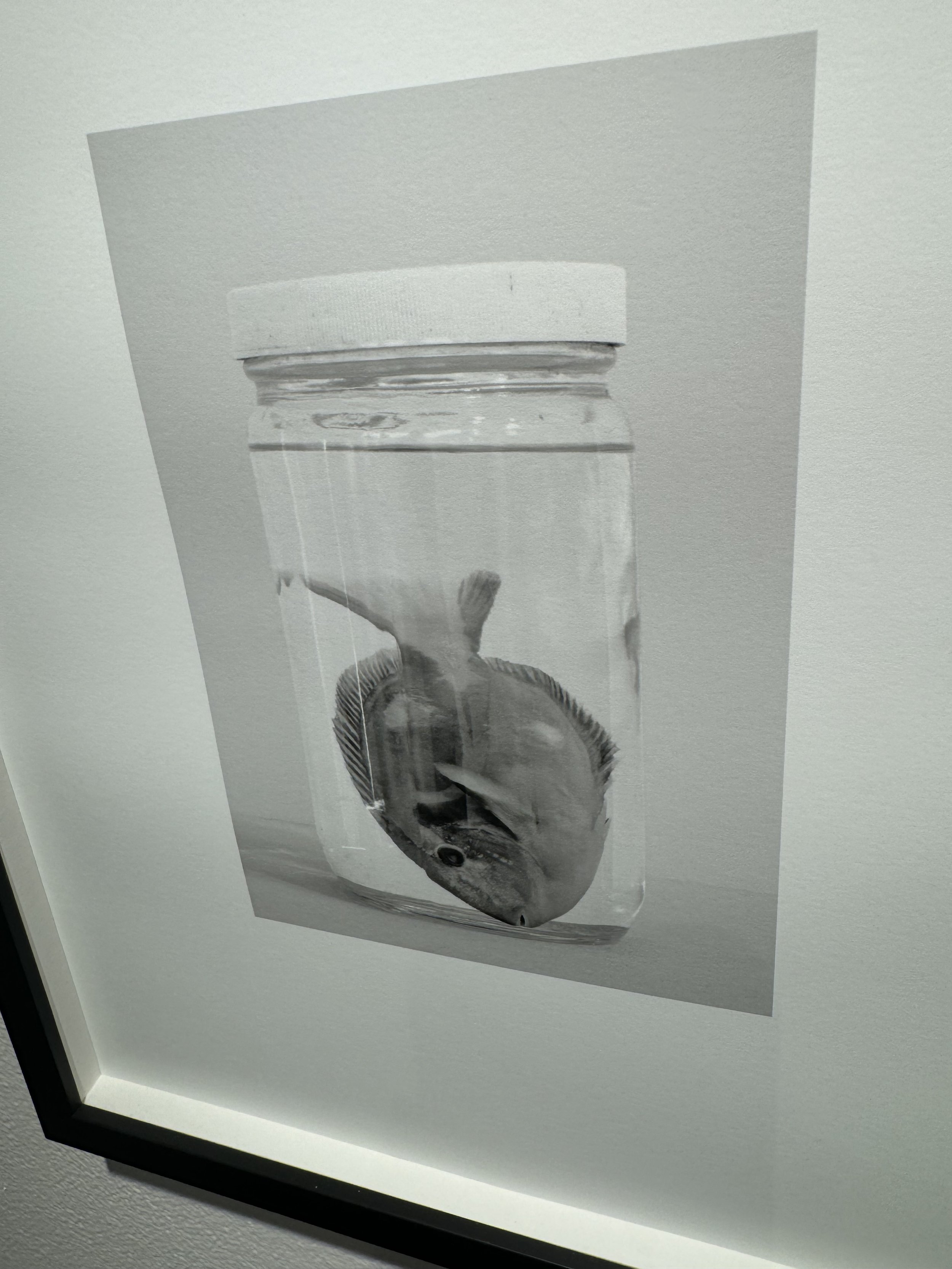Avant-garde music to the rescue; Qinwen Zheng the poet; and the truth about capitalism.
I’m All Lost In …
the 3 things I’m obsessing about THIS week
#57
1) Cellist Helen Gillet
An arts acquaintance from New Orleans or Detroit or Minneapolis (I’m not sure where my old friend Adam the Filmmaker lives these days), sent me a couple of messages earlier this month telling me not to miss cellist Helen Gillet’s upcoming Seattle show at the intimate Here-After theater in downtown’s Belltown neighborhood. When I saw that my favorite local pianist Marina Albero was also on the bill, I knew this was a promising tip; I’ve written about Albero’s Latin/blues/art school music here before (she even shows up in one of the poems in my chapbook).
In addition to Albero and her glowing electric keyboard auras and Gillet with her combo of percussive cello loops and orchestral drones, there was a third musician on the top-tier bill as well: Seattle saxophonist and woodwind player Jessica Lurie. She sat in on both Albero’s expert experimental opening set and Gillet’s showstopping closing set, providing earthbound jazz phrases as a connecting thread.
Helen Gillet at Seattle’s Here - After Theater, 11/13/24
Jessica Lurie & Helen Gillet at Seattle’s Here - After Theater, 11/13/24
Jessica Lurie & Marina Albero at Seattle’s Here -After Theater, 11/13/24
With synth keyboards and an array of effects boxes—as opposed to the traditional piano template—Albero leaned into an incantatory Laserdome-Radiohead sound that I’ve never heard in her swinging jazz performances. Whereas she often flaunts blues scales and Afro-Cuban modes, this time, with Lurie’s sax and flute accompaniment riffing on the hard bop, Albero explored Star Trek Starfleet flight deck oscillations.
Gillet’s set, meanwhile, was both meditative and raucous. She weaponized her battered cello as an electrical conduit for dirty chords, tricky echoing beats, hefty bass grooves, and titanic drones as she mixed art song, folk airs, and swaggering rock in an energized show that featured her bluesy and operatic voice. “Lord I want to strut,” she sang, 100% on brand, as caramel waves of electrified cello flowed from her patchwork of blinking gear.
Late in her performance, with a seamless shift from art hymn to a forboding and locked-in 1-3-7 (D, F, C) jam, I nudged my pal Byrne: “This sounds like a P.J. Harvey song.”. “It is a P.J. Harvey song,” he said as Gillet’s solo cello turned into a raging rock band.
75-plus people were on hand in this downtown theater space off the alley behind the popular Crocodile club. We were momentarily shaking off last week’s devastating election results on a rainy Wednesday night in November while embracing our inner Jazz-Age Berlin during these ominous days.
11/13/24
2) The Poetry of Qinwen Zheng
Somehow, the WTA’s two ascendant young stars, World No. 3, 20-year-old American Coco Gauff and World No. 5 , China’s 22-year-old Qinwen Zheng, hadn’t collided in any of the tournament brackets all year.
Until this week’s thriller at the 2024 WTA Finals final. What a profound match.
A showdown between Coco Gauff and Qinwen Zheng—who have similar styles as fleet-footed, court coverage demons—was long overdue. Or at least, I’ve been waiting for it all season. Mainly because watching Zheng destroy everyone she plays can get annoying. Zheng is scary good in that Martina Navratilova way that makes you root for her opponents. With her regal air (cue the post-match handshake police), Zheng is inexorably on track to becoming World No. 1 within the next 18 months, like it or not (mark my words).
Gauff, thanks to her own on-court superpowers, and despite a mid-season falter, seemed like one of the few players left who could conceivably stand up to Zheng. Digging in with aggressive wall-to-wall backhand and forehand returns, Gauff, in fact, did eventually win this grand finale last Saturday in a stunning, down-one-set and multiple match-points-behind, comeback tiebreaker, 3-6, 6-4, 7-6.
The sudden Coco vs. Qinwen rivalry will be something to watch in 2025.
The other player who can beat Zheng (and did in last week’s opening round robin phase before losing to Gauff herself) is the current World No. 1, my favorite player, Aryna Sabalenka. Daffy Saby (as we call Sabalenka in my household) won all four of her matches against Zheng this year, pretty handily too, except in the Wuhan final last month where Zheng managed to take one set, her first ever (foreshadowing?), from Sabalenka, before eventually losing 3-6, 7-5, 3-6.
Zheng’s dedicated Chinese fans refer to Sabalenka poetically as '“the mountain that Zheng is yet to overcome,” which is fitting because Zheng is something of a poet herself. In interviews, Zheng earnestly talks about her delicate heart and about how tennis hurts.
WTA stars Coco Gauff and Qinwen Zheng after the 2024 WTA Finals championship match, 11/9/24
Thanks to Zheng’s habit of drifting into poetry, reporters were prompting her with philosophical queries last week. At last Friday’s press conference after Zheng’s semifinal win over 2024 Wimbledon champion Barbora Krejčíková, a reporter asked: “Are there times on court when sometimes it doesn’t seem … real?” Unphased by the odd question, Qinwen wondered out loud for a moment, “Hmmmmm.” And then: “No, I feel everything is real…
because I know I have a big struggle.”
***
Two other notes from my ongoing WTA obsession. First, it needs to be said—and many did: Holding this year-end women’s tennis championship in a cruelly sexist country like Saudi Arabia is a dangerous bit of sportswashing; the Saudi regime lured the WTA to Riyadh with millions of dollars in over-the-top prize money.
Second, while I’ve never been a podcast fan (I squirm in frustration when Know-it-Alls talk at me…so, why opt for that in my spare time?), I am currently longing to meet people who share my preoccupation with the WTA. So, I started seeking out parasocial relationships this week by checking out a few tennis podcasts. Nothing is winning me over so far; the batch I’ve found seem too exuberant and literal, and sometimes stilted with occasional, cringe-worthy reaches to be cheeky.
I’m holding out hope, though. With some thoughtful, sociopolitical candor, Ben Rothenberg’s in-deep No Challenges Remaining has potential. And Catherine Whitaker’s The Tennis Podcast seems at least comprehensive, and occasionally insightful thanks to eager tennis reporter Matt Roberts. Unfortunately, he, and the other straight-laced co-host, David Law, seem unable to keep up with, or even recognize, Whitaker’s playful sarcasm.
3) The Psychological Wage
My bibliophile pal Charles turned to me at the bar this week and said: “I’m going to tell you the truth about capitalism.” Charles is a properly well-read Marxist, so I felt compelled to pay attention.
I can’t say I fully understood his thesis, but he was quoting W.E.B. Du Bois’ notion of “the psychological wage” from Du Bois’ 1935 book Black Reconstruction in America.
TLDR: The basic concept is that the wealthy, white ruling class is able to cast African American workers as the nemesis of white workers despite the clear common interests these two superficially disparate groups of wage laborers share.
This isn’t merely a successful divide and conquer strategy. It goes a step further. The ruling class charms working whites with social advantages that hint enticingly at the possibilities of upward mobility. This ploy turns one faction of the system’s economic losers (white workers) into enthusiastic allies of their own oppressors.
Pretty basic stuff, but certainly relevant at the moment as Trump rises to power with his own version of “horizontal oppression” making, not only whites, but Latino men and young African American men feel empowered with his sinister degradation of “illegals.” (The notable Hispanic pro-Trump vote is hardly complicated; Trump’s anti-immigrant rhetoric psychologically elevates one group of marginalized people over another. And given the male common denominator here, machismo and misogyny are clearly also part of Trump’s successful pitch.)
Trump’s trick also demonizes haughty urbanites as a way to shift the political focus away from actual practitioners of corporate greed (like himself, for one example) onto supposedly dangerous elites. As I’ve written a few times now in the run-up to the election, Trump’s popularity with the working class comes with a dose of right wing Marxism , which is certainly ironic given his own facile tactic of commie baiting, i.e., “She’s a Marxist!”
Trump has stirred up an apparent working class rebellion based on conspiratorial appeals to cultural animus. There’s a historical name for this sort of reactionary class consciousness: Hitler’s National Socialism.
—————
This week’s recommended viewing: the Victoria Sambunaris photo exhibit at the Photographic Center Northwest.
11/14/24
At the Photographic Center NW through December 15, 2024







